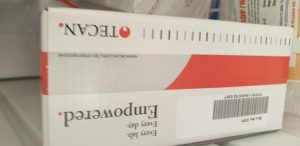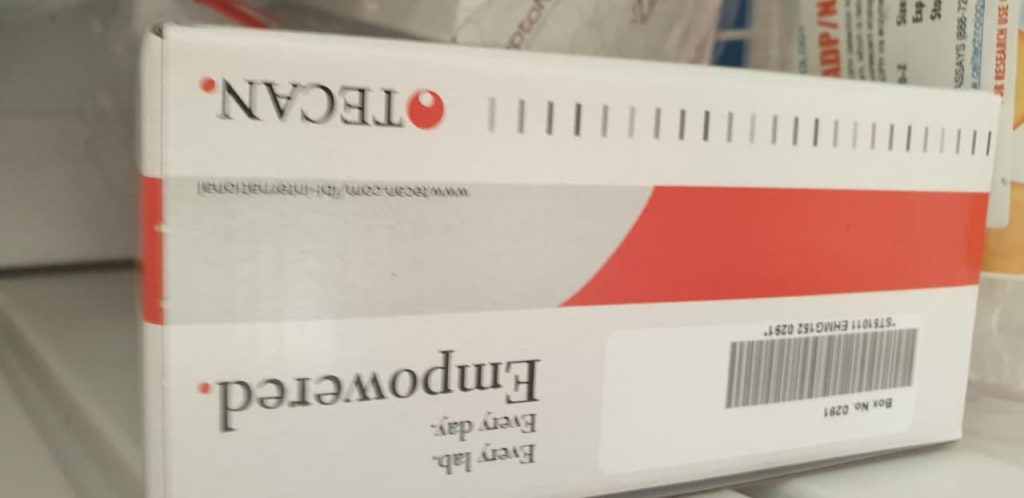The goal of this research was to supply a crucial appraisal of the literature on the consequences of the COVID-19 pandemic on organ transplantation, with a particular concentrate on lung transplantation given the predominant pulmonary involvement of the virus. There was a big lower in lung transplant volumes in the course of the first wave of the COVID-19 pandemic resulting from a mixture of lowered availability of donors and an imbalance between waitlist additions and inactivations. SARS-CoV-2 an infection was subsequently related to an exuberant immune response that may result in the event of postinfectious fibrotic lung illness. Few lung transplants have been carried out in beforehand contaminated recipients and long-term outcomes stay unknown.
Although the lung transplant quantity rebounded in the course of the second wave, it’s unclear what the long-term results of healthcare useful resource limitation and public well being measures may have on transplant volumes sooner or later. Outcomes after SARS-CoV-2 an infection in earlier lung transplant recipients seem like worse than most of the people, and, though an immunosuppressed state doubtless contributes to those outcomes, whether or not immunosuppression ought to be altered in these uncovered to or contaminated with SARS-CoV-2 stays unanswered within the absence of unequivocal knowledge. The COVID-19 pandemic has introduced quite a lot of challenges for lung transplant applications throughout the globe. Multiple analysis questions stay to be answered in an effort to optimally handle lung transplant recipients within the context of this pandemic.
COVID-19: Immunology, Immunopathogenesis and Potential Therapies
The Coronavirus Disease-2019 (COVID-19) imposed public well being emergency and affected hundreds of thousands of individuals across the globe. As of January 2021, 100 million confirmed circumstances of COVID-19 together with greater than 2 million deaths have been reported worldwide. SARS-CoV-2 an infection causes extreme manufacturing of pro-inflammatory cytokines thereby resulting in the event of “Cytokine Storm Syndrome.” This situation leads to uncontrollable irritation that additional imposes multiple-organ-failure finally resulting in demise. SARS-CoV-2 induces unrestrained innate immune response and impairs adaptive immune responses thereby inflicting tissue harm. Thus, understanding the foremost options and evolution of innate and adaptive immunity to SARS-CoV-2 is essential in anticipating COVID-19 outcomes and in growing efficient methods to manage the viral unfold. In the current evaluation, we exhaustively talk about the sequential key immunological occasions that happen throughout SARS-CoV-2 an infection and are concerned within the immunopathogenesis of COVID-19. In addition to this, we additionally spotlight numerous therapeutic choices already in use comparable to immunosuppressive medicine, plasma remedy and intravenous immunoglobulins together with numerous novel potent therapeutic choices that ought to be thought-about in managing COVID-19 an infection comparable to conventional medicines and probiotics.
Peptides that bind to and are introduced on the cell floor by Human Leukocyte Antigens (HLA) molecules play a crucial function in adaptive immunity. For a very long time, it was believed the entire HLA certain peptides have been generated by easy proteolysis of linear sequences of mobile proteins, and subsequently, are templated within the genome and proteome. However, proof for untemplated peptide ligands of HLA molecules has amassed over the past 20 years, with a latest international evaluation of HLA-bound peptides suggesting {that a} appreciable proportion of HLA certain peptides are doubtlessly generated by splicing/fusion of discontinuous peptide segments from one or two distinct proteins. In this evaluation, we’ll evaluation latest discoveries and debates on the contribution of spliced peptides to the HLA class I immunopeptidome, contemplate biochemical guidelines for splicing, and the potential function of those spliced peptides in immune recognition.

Administration of a recombinant ALDH7A1 (rA7) signifies potential regulation of the metabolite and immunology pathways in Atlantic salmon contaminated with Aeromonas salmonicida
The bacterium Aeromonas salmonicida is the pathogen accountable for furunculosis, which is a severe illness of salmonids. This illness has a big financial influence on the financial advantages of the worldwide salmon farming business. However, the pathogenesis of this illness in fish continues to be unknown. Members of the aldehyde dehydrogenase gene (ALDH) superfamily play a key function within the enzyme cleansing of endogenous and exogenous aldehydes. In this research, we obtained a recombinant aldehyde dehydrogenase 7A1 (ALDH7A1) protein to seek out its capabilities on Atlantic salmon contaminated by A. salmonicida. The transcriptional response within the liver of Atlantic salmon (Salmo salar) with differing ranges of A. salmonicida an infection was analysed and in contrast in an effort to reveal mechanisms by which ALDH7A1 might confer an infection resistance.
With the addition of ALDH7A1 protein, it was discovered {that a} whole of 13,369 genes have been annotated with a number of KEGG and localized to 360 KEGG pathways within the excessive focus an infection group. The differential expression genes have been extra enriched in immune signalling pathways such because the Toll-like receptor signalling pathway, NF-kappa B signalling pathway and TNF signalling pathway. On the opposite hand, at low concentrations of an infection, KEGG enriched a smaller variety of differential expression genes. However, these differential genes have been extra concentrated in immune signalling pathways such because the PI3K-Akt signalling pathway, JAK-STAT signalling pathway and complement and coagulation cascades.
[Linking template=”default” type=”products” search=”DiscoveryProbe Immunology/Inflammation Compound Library” header=”1″ limit=”144″ start=”4″ showCatalogNumber=”true” showSize=”true” showSupplier=”true” showPrice=”true” showDescription=”true” showAdditionalInformation=”true” showImage=”true” showSchemaMarkup=”true” imageWidth=”” imageHeight=””]
In addition, a number of identified immune-related genes together with HSP90α, HSP70, DNA damage-inducible transcript 4, integrin alpha 5 and microtubule-associated protein 2 have been among the many differentially expressed transcripts. These knowledge present the primary insights into the host-ALDH7A1 vaccine interactome. The outcomes of this research contribute to figuring out the potential resistance mechanisms of Atlantic salmon to A. salmonicida an infection and figuring out future remedy methods.

